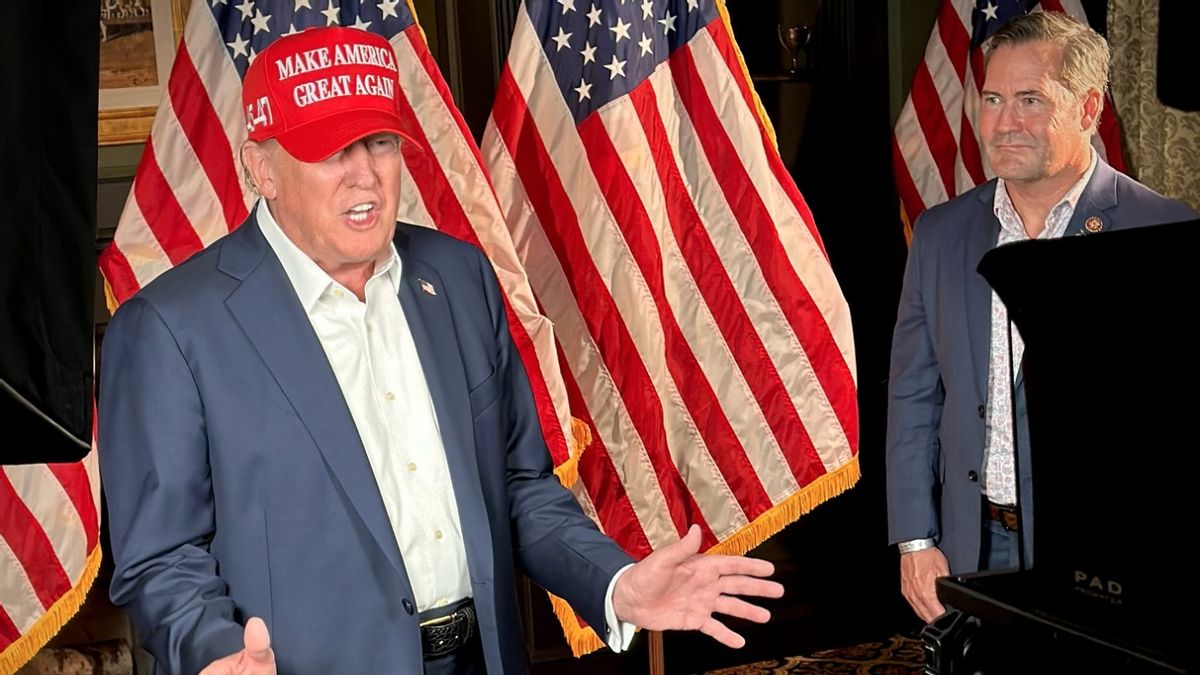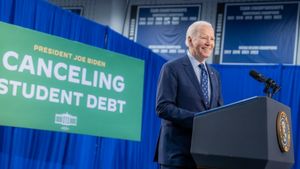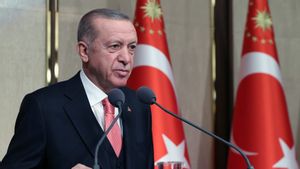JAKARTA - Former President of the United States (US) Donald Trump and his legal team asked federal judges to drop charges based on presidential immunity and constitutionality related to cases of government classified documents.
The motion of Trump and his lawyers was among the submissions they submitted to US District Judge Total Cannon on Friday, July 5, citing the Supreme Court's decision.
The Supreme Court stated that the former president has the right to immunity from federal demands for official action taken when they occupy the Oval Room.
Trump and his legal team argued that the partial delay was based on the reasons for the high court in the case, which emerged from Trump's demands by Smith in Washington, DC, related to the 2020 elections.
"The settlement of this threshold question is needed to minimize the adverse impact on the presidential institution arising from this unconstitutional investigation and prosecution," said Todd strafe, Emil Bove and Chris Kise's lawyers in a filing reported by CBS News, Saturday, July 6.
"Some delays are also the right actions to prevent further exploitation of institutions and judicial resources by the Executive Branch personnel in connection with an embarrassing law enforcement campaign," he said.
Trump asked Cannon in February to drop the charges leveled against him on the grounds that he has the right to the president's immunity.
The former president faces 40 counts related to alleged mishandling of classified documents after leaving his post in January 2021 and attempts to obstruct the Justice Department's investigation. Trump pleaded not guilty.
In addition to asking for a break in the trial, Trump and his lawyers suggested that they submit additional reports in the case to debate whether the actions alleged in the indictment were official or unofficial.
SEE ALSO:
Trump has argued in the three ongoing charges two were filed by Special Prosecutor Smith in federal court and the third was filed by prosecutors in Fulton County, Georgia.
Trump claims he has the right to legal protection from prosecution because the alleged act occurred while he was still in office. The former president pleaded not guilty to all charges.
But Smith and a team of prosecutors urged Cannon to reject his request, arguing that the charges filed by the federal jury last year did not sue Trump for any action he took as president.
Every criminal charge in a substitute indictment is based on Trump's actions after he left office, the special advisory argument in his March filing. Even if a former president can claim immunity from criminal charges for official action and he can't do it Trump can't benefit from the immunity in this case, "said special prosecutor Smith.
The English, Chinese, Japanese, Arabic, and French versions are automatically generated by the AI. So there may still be inaccuracies in translating, please always see Indonesian as our main language. (system supported by DigitalSiber.id)













